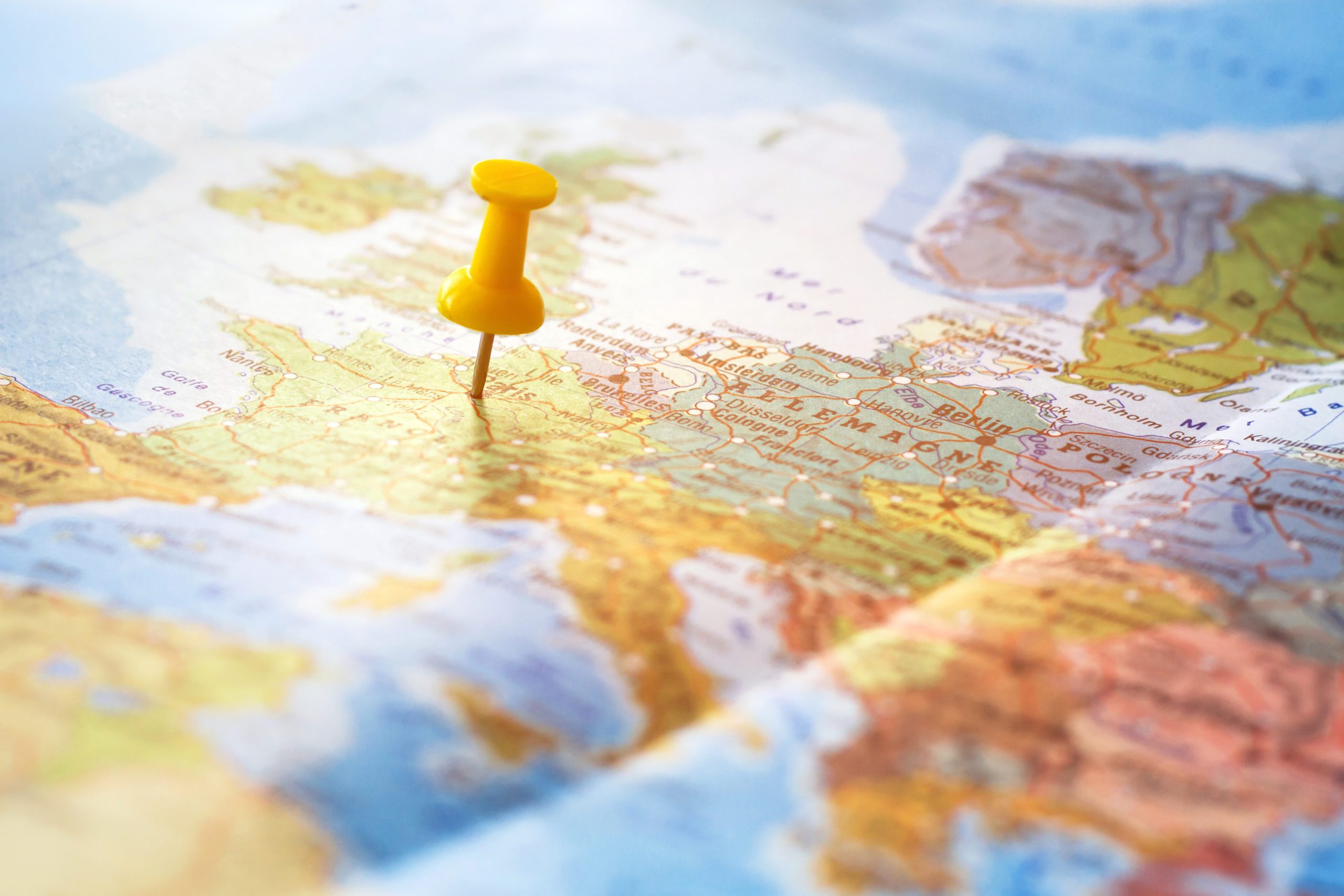How To Choose The Best Country To Work & Live As An Expat

There are lots of things to consider when choosing a country to move to. What’s the tax system like? How easy is it to travel? Can I comfortably retire there when I stop working? Alongside these questions, there are four areas that have a large effect on life in any given country.
It’s a good idea to do as much research as possible before the big move, but here are the important things to consider when it comes to choosing where in the world you want to live and work.
Education
If you are moving to another country with children – or planning on continuing education yourself – then looking into the quality of a country’s education system is a must. Country rankings can differ depending on whether you’re looking for primary, secondary, or higher education.
According to the BBC in 2015, Singapore, Hong Kong and South Korea came top in the overall rankings, based on Maths and Science at age fifteen. However, if you’re planning on moving to the States, you’ll be glad to learn that the USA has recently been ranked number one for university education.
International Schools
International schools are likely to teach a similar syllabus to the ones taught in your home country. The curriculum and general running of the school will also be similar. This can benefit your child, particularly if they are near to finishing a key stage of school, (such as primary school for instance). It can be easier for children to acclimatise to a new country and culture by making a gradual rather than instant transition.
Local Schools
Local schools are just that; local syllabus, curriculum and school environment. It can be a better option to choose a local school rather than international because local establishments will immerse your child in the country’s language, culture and social etiquette.
Choosing the right school
Whether local or international, it’s very important that you research various options when you’re looking for a school in your new country and ask the right questions.
-
Is there a waiting list, and what steps do you need to take to reserve a place?
-
What kind of curriculum is taught?
-
Does the school have other Expat children, or ways of helping its pupils adjust to a new school?
Quality of living
We all want similar things from the country that we live in: good public services, reasonable prices for food and accommodation, a decent healthcare system. When you start researching countries you want to move to, there are certain phrases that come up often in global statistics:
-
Cost of living – The level of prices of everyday items.
-
Pollution Index – The air quality.
-
Healthcare Index – The Healthcare system quality.
These, and a number of other key criteria, contribute to calculating a country’s overall quality of living: basically, how high are the standards of comfort, health and general happiness of the citizens of any individual country.
If you’re into statistics, it will interest you to know that Denmark is currently seen to be the best country for quality of life, closely followed by Switzerland and Australia. But that doesn’t mean you’ll instantly feel amazing if you move to Denmark!
Contradictions
Statistics are good guidelines, but of course, some benefits also bring their own downsides. For example, countries which have a high quality of living also tend to have a high cost of living. This makes sense when you consider that if a country produces good quality goods, it will charge a reasonable or higher price for them. You’re essentially paying for your good quality of life.
Likewise, certain countries, like India, have a low cost of living but a high amount of pollution. So you could find a cheap place to live but it might not be in an area with the cleanest air quality. When it comes to countries, it can occasionally be a case of getting what you’re willing to pay for.
Of course, no country will be completely perfect, but it can be useful to work out which qualities of living are most important to you when you start comparing countries and regions.
It’s a good idea to take into account how much you could potentially earn in a given country and then try to estimate the potential quality of life that you could have with such an income. For example, if your income is in GBP then living in India would make you fairly wealthy, and therefore your quality of life could be very good – even though the overall quality of life in India is low.
Climate
This comes down to personal preference. Do you like coastal breezes or urban heat? Do you love snow? Can’t stand the rain?
Just like quality of living, no country is perfect. A Caribbean island might be a sunny paradise to one person and a humid prison to another! When weighing up which climate you’d prefer, consider the aspects of life that are affected by temperature.
Hot
Southern and eastern countries are likely to have hotter climates. Mediterranean countries like Italy, Turkey and Greece have a lot of fruits, wines, and more exotic options like olives because the warmer climate allows to them to be locally grown.
However, hot temperatures can be difficult to live in, particularly if you’re not used to them. Hot weather may be lovely for holidaying in, but will it still be as nice when you have to work in it?
If you’re moving to a hot country, don’t forget the following:
-
Drink plenty of water, even if you don’t feel thirsty.
-
Include a few salty foods in your diet as you will lose salt when you sweat.
-
Be prepared to sweat – a lot!
-
Invest in a sunhat and sunglasses.
Cold
Colder climates don’t necessarily mean rain and snow – although you’re guaranteed at least some dreary weather!
Countries like Norway or the state of Alaska have a reputation for good quality seafood, due to their chilly temperatures. Russia and Canada too, are countries that are renowned for their cold climates but have amazing landscapes, so it’s vital to adjust to the temperature as part of your everyday life if you want to explore your new country.
The key thing to remember if you’re moving to a colder country is to keep warm! Climate affects daily life anywhere on the globe; hot climates demand air conditioning; cold climates demand a good central heating system. If you want to live in a country with a cold climate, remember the following:
-
Invest in good quality winter clothing.
-
A pair of practical boots can be a lifesaver when it snows.
- Have plenty of warm food and drink.
Culture
One of the great things about emigrating abroad is the chance to experience a new culture and to become part of it. Living in a country is very different to just visiting it, so cultural aspects will have an effect on daily life.
Religion
There will be various religions in every country; some are part of daily culture, but some are also linked with a country’s laws. For example, in Saudi Arabia women are limited in their freedom of movement, and entrance to the holy cities of Mecca and Medina are restricted to Muslims only.
However, religious buildings include some of the most beautiful examples of architecture across the world, most of which are available for the general public to visit. If you are religious and are in a country where your religion is the main faith, or one of them, that can also be an advantage when settling into your new life and meeting new people.
Festivals
Where there’s a country, there’s a festival to be found. Events and celebrations can range from any subject:
-
Religion
-
Food
-
Public Holidays
-
Myths and legends
Famous examples include Día de Muertos, otherwise known as the Day of the Dead, in Mexico. The Mexican equivalent of Halloween, the festival is a colourful macabre event with face painting, cooking and music.
Further afield is the famous festival of Diwali in India. Also known as the Festival of Lights, Diwali illuminates buildings all over India with candles or lamps, originally intended to ward off evil. It’s an excellent excuse to light up the sky with fireworks.
Languages
It may sound like an obvious aspect of becoming an Expat, but it’s likely that the main language of your new country will not be English. Even in America, there’s a host of different cultures, including a strong Latino population. It never hurts to learn the language of your new country, even if English is widely spoken. As well as recent claims that being bilingual can benefit your health, it’s part of adopting your new country by making sure you can be understood. You can start getting to grips with a new language with:
-
Online programs and apps such as Duolingo
-
A Dictionary of words and phrases
-
Listening to locals talking while you’re out and about
-
Going to a class at a language school
-
Getting private tuition
Expat community
It might be worth considering how large an Expat community there is in your chosen country. It can be a great help when you first move to a new country, to know that there are other people who have made the move (and lived to tell the tale!) Meeting other expats can lead to good friendships, and even visiting one another’s home countries together.
On the other hand, it can also be too easy to simply stick with other Expats. In order to fully adjust to living in your chosen country, you will need to integrate with the local culture, whether that includes speaking the language or regularly interacting with the locals. As in most cases, it’s healthy to maintain a balance between the two.
Conclusion
Every Expat is different, and it’s important that you decide what matters most to you when choosing a country to move to. No matter where you go, it will rain a little, there will be some sunshine, there will be expensive products and there will be some language barriers – even if it’s just remembering to say pants instead of trousers!

